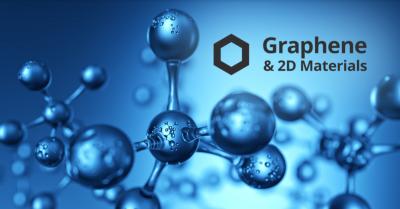This is a sponsored article by Dr Richard Collins, IDTechEx
Graphene is on the cusp of significant market growth; the opportunities are exciting and diverse, each with significant potential. Graphene and 2D Materials Europe 2020 (13-14 May, Berlin) is the largest B2B event on the topic with a dedicated focus on the commercial frontiers. www.GrapheneEurope.tech

There is often confusion surrounding the types of graphene, commercial status, and their target markets. This article will briefly summarise each and showcase what to expect at this event.
Graphene particles (powders and nanoplatelets)
These are the most commercially advanced forms of graphene and are seeing high-volume applications in energy storage, anti-corrosion coatings, conductive inks, thermal heat spreaders, and many more. Owing to fundamental differences, it is realistic to say no graphene in this category is the same and each application will have different requirements. Even powders and nanoplatelets should be treated distinctly with different players, advantages, and potential.
Exfoliation processes predominantly produce graphene nanoplatelets that can range in lateral size, thickness, surface area and more; these can vary from thin-graphite to just a few layers depending on the process.
Graphene oxide and reduced graphene oxide powders are typically made by a modified Hummers approach and can have similar variations to nanoplatelets.
Within these two approaches there are new techniques being commercially adopted and other competitive routes emerging. There are many players, prices, and strategies out there, but the success story is not guaranteed. There are still fundamental understandings developing, such as at the interfaces, and the value still to be proven in many sectors.
The IDTechEx analysts, who curate the agenda, forecast that the market for graphene producers will exceed $300m within the next decade with a tipping point rapidly approaching.
Most of this market valuation will be attributed to these particles. Delegates will hear from global manufacturers, integrators, and end-users on these nanoplatelets and powders, tackling questions such as:
Why is one of the largest graphene orders to date for the smartphone industry? Could graphene enable the next-generation of lithium-ion batteries? Or assist the market penetration of supercapacitors? What about lightweight composite structures? Or enhancing concrete? Why would it be used for offshore wind turbines? Or pipelines? How can this be used in printed electronics?
CVD grown graphene
This bottom-up approach to graphene can supply competitive particles but is more typically used to make wafers or sheets. This is at a nascent stage of commercialisation and addresses very different markets.
Initially the opportunity was thought to lie with transistors or TCFs, but due to a lack of bandgap and challenging incumbents, respectively, neither were to be successful. However, there are a plethora of opportunities beyond this utilising the high electron mobility, high surface area and other notable properties.
Applications on display at the event will notably include optoelectronics and sensors, with manufacturing discussion as to the graphene growth, quality and transfer techniques. Delegates will hear from the status of key players and research institutes as the first success stories emerge.
Other
There are other, less mainstream, approaches to graphene formation that again are distinct in the form and ultimate markets. Epitaxial methods deliver quality graphene on silicon carbide, which lends itself most notably for sensitive detectors. Again, this family of 2D materials is addressed at this event.
Beyond Graphene
Beyond graphene there is a huge family of 2D materials (academics computationally estimating over 6000 variants). The frontrunners are benefitting from the learning curve but also taking the industry in a variety of unknown directions, either standalone or as heterostructures. Players will address this larger family and the growing technology platform that is 2D materials.
The longest serving event for graphene commercialisation is increasingly relevant as the material exits the lab and enters the marketplace. With a 2-day dedicated conference track, parallel tracks for notable verticals, and a large trade floor, this has become the home of graphene commercialisation. Join us in Berlin on 13-14 May www.GrapheneEurope.tech